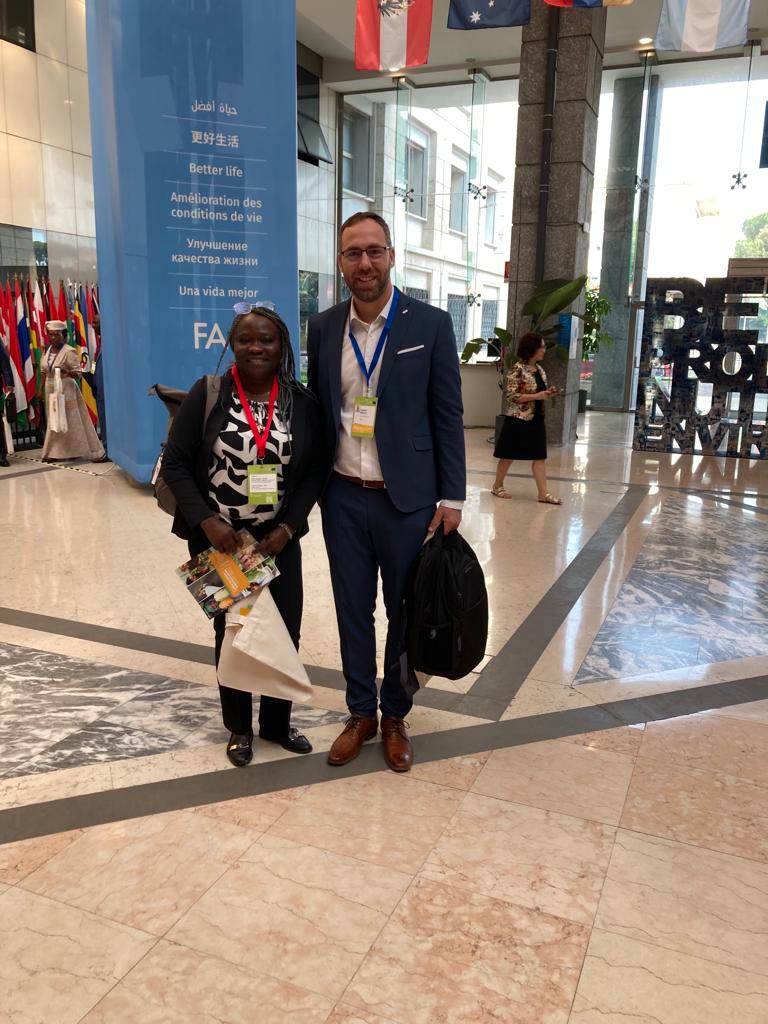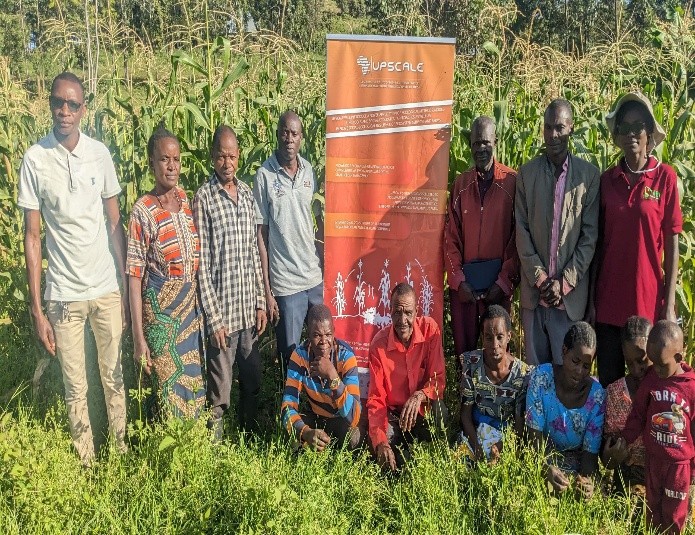Five Funded Projects Showcased, Paving the Way for Sustainable Agricultural Innovations in Africa
[Rome], [June 30] – Stakeholders from African and European agriculture collaborated to address the common challenge of transitioning to more sustainable agricultural practices during the recent 5th African Union (AU) – European Union (EU) Agriculture Ministerial Conference held in Rome. The conference provided a platform to present the remarkable achievements and policy recommendations of five funded projects under the Horizon 2020 program’s “Sustainable Intensification in Africa (SFS-35-2019-2020)” topic.
The agricultural sectors in Africa and Europe share the common challenge of moving towards more sustainable ways of agricultural production. Both regions aim to ensure food production and reduce the environmental impact of agricultural activities in the face of climate change, more unpredictable water supply, and increased degradation of land resources. Systemic approaches are needed to optimize agricultural productivity as well as the delivery of ecosystem services.
Coordinated Efforts for Sustainable Agri-food Systems in Africa: Outcomes and Recommendations
The conference thematic session “Research and Innovation for smarter policies and technologies”, chaired by Martin Heydon (Minister of State at the Department of Agriculture, Food and the Marine, Ireland) emphasized the significant progress made by key projects. Specifically, four projects operating within the African Farming Systems subtopic (SustInAfrica, EWA BELT, SustainSahel, and UPSCALE), along with one project operating within the Soil Information System for Africa subtopic (Soils4Africa), have demonstrated innovative approaches to enhance primary production while ensuring sustained support for local communities. These projects are at the forefront of sustainable agricultural development in Africa.
SustInAfrica, EWA BELT, SustainSahel, and UPSCALE showcased the benefits of agroecological innovations on the ground, providing evidence to support the mainstreaming of agroecological practices such as agroforestry and push and pull technology. By transforming agri-food systems, prioritizing environmental concerns, and ensuring sustainable and healthier food production and sovereignty, these projects have set a new benchmark for agricultural development in Africa.
In addition, the Soil Information System for Africa (Soils4Africa) project, has been instrumental in creating a comprehensive and open database on agricultural soils. This project, a vital component of the EU-Africa Research and Innovation Partnership on Food and Nutrition Security and Sustainable Agriculture, aims to improve soil management practices and enhance agricultural productivity across the continent.
The outcomes and recommendations of all five projects were presented during the thematic session “Research and Innovation for smarter policies and technologies”. A short video (available here) highlighted the common project recommendations, followed by an interactive panel discussion involving Dr. Mary Steverink-Mosugu from ISRIC – World Soil Information and the coordinator of the Soils4Africa project, who offered insights into the innovative approaches and tangible results achieved.
Mainstreaming Agroecology and Addressing Knowledge Barriers: Essential Components for Sustainable Development
The five showcased projects have laid the foundation for transformative actions to reshape African agriculture. By generating holistic evidence, promoting technology adoption, aligning soil information systems, and integrating agroecological practices, these projects have spearheaded a movement toward sustainable and resilient agricultural systems. Based on this evidence and activities that demonstrate the benefits of agroecological innovations on the ground, the main recommendations of these projects are clustered around three axes.
The first axis of recommendations focusses on mainstreaming agroecological practices such as agroforestry to transform agri-food systems, prioritize the environment, and ensure sustainable and healthier food production and sovereignty. It is also suggested to promote the use and sustainability of a harmonized Soil Information System.
The second axis of recommendations revolves around addressing barriers and constraints to mainstreaming sustainable innovations. The primary barrier identified is knowledge. Here, the projects propose promoting knowledge exchange for climate-resilient agroecological practices and governance articulation at all levels. To overcome the multiplicity of uncoordinated initiatives farmers are exposed to, the projects recommend streamlining and coordination between donors, research, and the national and regional strategies of beneficiaries.
Finally, the third axis emphasizes the importance of training on and disseminating agroecological knowledge. These projects, which are still ongoing, aim to centralize knowledge, enhance access to physical and digital knowledge hubs, and establish digital platforms for disseminating agroecological knowledge. These initiatives and tools, if leveraged by matching policies, provide a foundation to overcome the knowledge bottleneck in agroecology and boost agricultural production, agri-food system resilience and environmental sustainability now and in the coming decades.
The achievements and recommendations of the five projects were met with great enthusiasm and support from attendees at the conference. The outcomes from this collaboration provide a strong foundation for future advancements in African agriculture, contributing to increased agricultural production, enhanced agri-food system resilience, and environmental sustainability in the years to come.
For more information or media inquiries, please contact:
Vladimir Mrkajic
UPSCALE’ Dissemination Team Member
UPSCALE Project
mrkajic@inosens.rs +381646134342
Conference details [link]



